I always envision summer as this super relaxing time where I lay by the pool and read books. Reality is not quite as dreamy, as there is still laundry to do and kiddos to corral. However, I do love sharpening my skills and picking up a few professional development books. Based on your responses and the questions I get via email, I am going to focus my professional development reading on math intervention and have chosen Mathematical Mindsets by Jo Boaler.
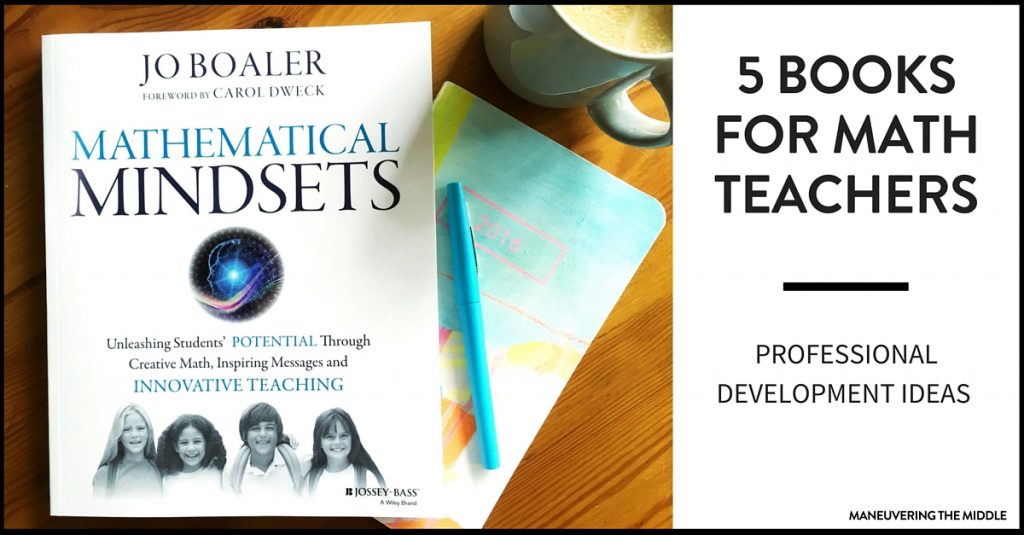 Before deciding on Mathematical Mindsets, I was debating five different books on a variety of professional development topics. All relatively new with researched based strategies to support learning in the classroom. Today, I am sharing my five professional development books for math teachers to consider reading this summer.
Before deciding on Mathematical Mindsets, I was debating five different books on a variety of professional development topics. All relatively new with researched based strategies to support learning in the classroom. Today, I am sharing my five professional development books for math teachers to consider reading this summer.
5 Professional development books for math Teachers
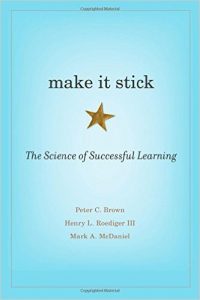 Make It Stick: The Science of Successful Learning
Make It Stick: The Science of Successful Learning
Peter Brown Mindset, Carol Dweck Grit, and Angela Duckworth
“To most of us, learning something “the hard way” implies wasted time and effort. Good teaching, we believe, should be creatively tailored to the different learning styles of students and should use strategies that make learning easier. Make It Stick turns fashionable ideas like these on their head. Drawing on recent discoveries in cognitive psychology and other disciplines, the authors offer concrete techniques for becoming more productive learners.
Memory plays a central role in our ability to carry out complex cognitive tasks, such as applying knowledge to problems never before encountered and drawing inferences from facts already known. New insights into how memory is encoded, consolidated, and later retrieved have led to a better understanding of how we learn. Grappling with the impediments that make learning challenging leads both to more complex mastery and better retention of what was learned.”
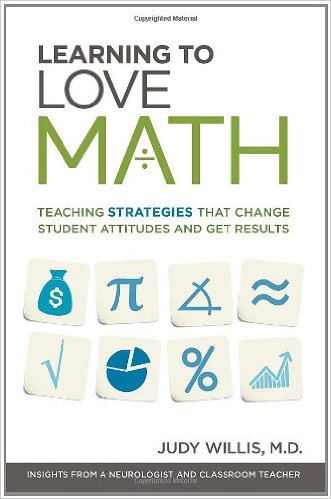
Judy Willis
“Is there a way to get students to love math? Dr. Judy Willis responds with an emphatic yes in this informative guide to getting better results in math class. Tapping into abundant research on how the brain works, Willis presents a practical approach for how we can improve academic results by demonstrating certain behaviors and teaching students in a way that minimizes negativity.
With dozens of strategies teachers can use right now, Learning to Love Math puts the power of research directly into the hands of educators. A Brain Owner s Manual, which dives deeper into the structure and function of the brain, is also included providing a clear explanation of how memories are formed and how skills are learned. With informed teachers guiding them, students will discover that they can build a better brain . . . and learn to love math!”
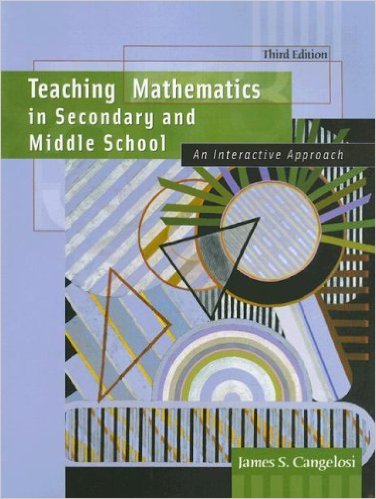 Teaching Mathematics in Secondary and Middle School
Teaching Mathematics in Secondary and Middle School
James Cangelosi
“Interactive in its approach, this book focuses on all the complex aspects of teaching mathematics in today’s classroom and the most current NCTM standards. It illustrates how to creatively incorporate the standards into teaching along with inquiry-based instructional strategies. The book illustrates how to lead pupils toward meaningful mathematics and strategies for developing mathematics skills. Includes an abundance of illustrative examples, mini case studies, one expansive case study that follows a mathematics teacher through his first year in the profession, cooperative learning activities, field-based activities, and transitional activities. Reviews applying for faculty positions as a mathematics teacher, teaching math from a historical perspective, communication with math, working with students as individuals, working with ESL/EFL and integrating math with other content areas. Includes updated information with respect to the research literature, the publication of PSSM, and advances in technology. For educators teaching mathematics in secondary and middle school.”
Jo Boaler
“Mathematical Mindsets provides practical strategies and activities to help teachers and parents show all children, even those who are convinced that they are bad at math, that they can enjoy and succeed in math. Jo Boaler—Stanford researcher, professor of math education, and expert on math learning—has studied why students don’t like math and often fail in math classes. She’s followed thousands of students through middle and high schools to study how they learn and to find the most effective ways to unleash the math potential in all students.
There is a clear gap between what research has shown to work in teaching math and what happens in schools and at home. This book bridges that gap by turning research findings into practical activities and advice. Boaler translates Carol Dweck’s concept of ‘mindset’ into math teaching and parenting strategies, showing how students can go from self-doubt to strong self-confidence, which is so important to math learning.”
Cathy Humphreys and Ruth Parker
“Making Number Talks Matter is about the myriad decisions facing teachers as they make this fifteen-minute daily routine a vibrant and vital part of their mathematics instruction. Throughout the book, Cathy Humphreys and Ruth Parker offer practical ideas for using Number Talks to help students learn to reason numerically and build a solid foundation for the study of mathematics. This book will be an invaluable resource whether you are already using Number Talks or not; whether you are an elementary, middle school, high school, or college teacher; or even if you are a parent wanting to support your child with mathematics. ”
After reading reviews and skimming the books, I have decided to read Mathematical Mindsets by Jo Boaler. She uses her research to provide practical teaching ideas for building a mathematical mindset at any age.
From my experience, many of the struggles with math intervention begin with a students’ attitude or belief that he or she is “not good at math”. Do you agree? I plan to share practical ideas and reflections on Boaler’s book and would love for you to join me by reading along or asking questions in the comments below or on my Facebook page.
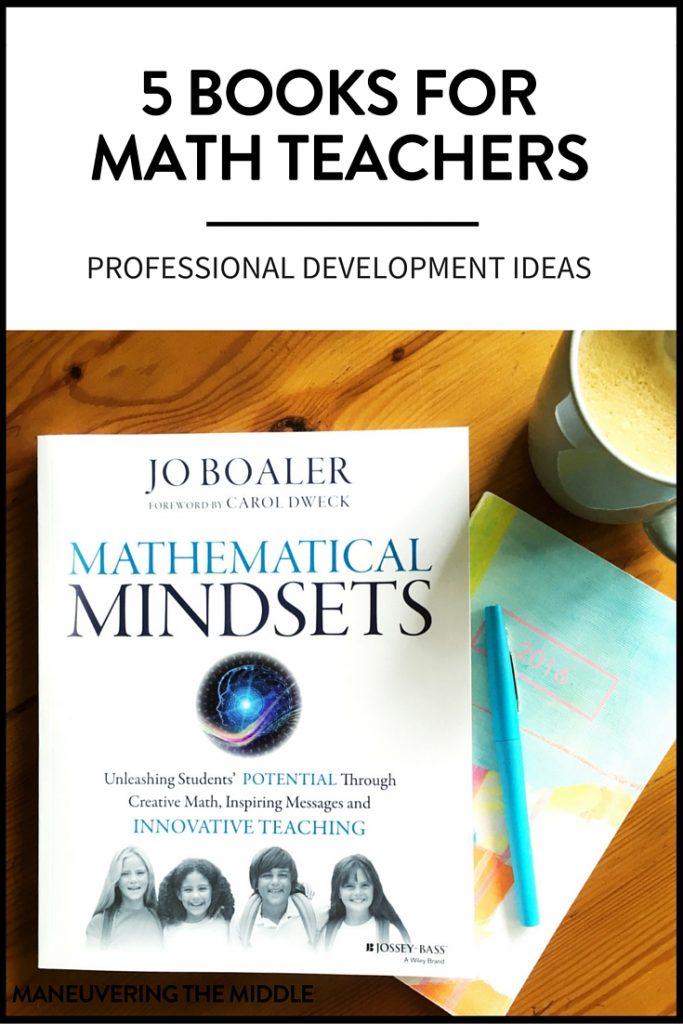
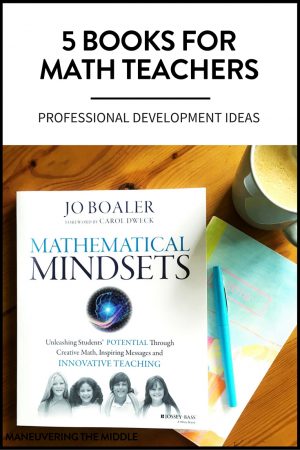
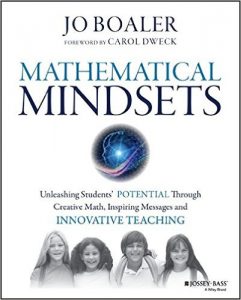
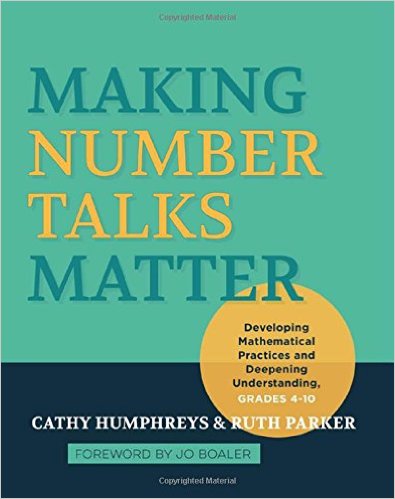
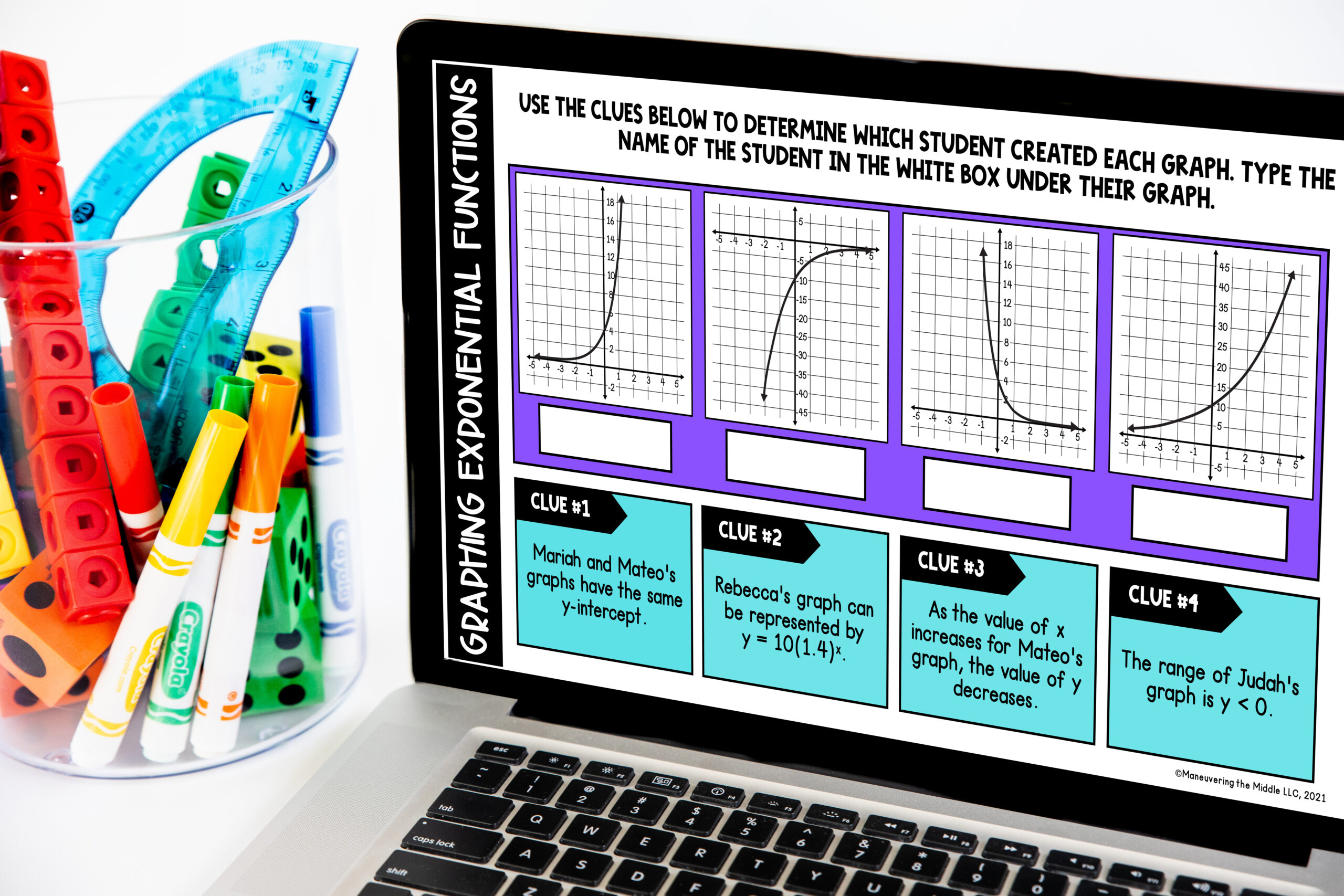
I am also a middle school math teacher. I had the opportunity to read Mathematical Mindsets during one of my breaks this year. It is fabulous! I finished it in only three days! This book should be required professional development reading for all math teachers. You will love it.
Hi Bonnie, thanks so much for the recommendation. I am really excited about it! Can’t wait to share!
Mathematical Mindsets in mathemagical – love this book!
I am loving it too!
Looking forward to reading all of these. I have read Make it Stick and it’s amazing. How we are teaching can be so much better. This book made me want to teach to be able to impact students in a way only yet to be discovered.
That is amazing Sherry! Thanks for sharing. I need to grab Make it Stick next!
Hi, I teach 5th grade math. Which of these books would be the best read for me?
I really like Mathematical Mindsets! It isn’t grade specific and includes several elementary references.
Hi! Great post. I’ve read 2 books so far this summer (1 for pleasure and 1 for personal growth), and tons of articles and blog posts. I have 2 additional books I plan to read for PD. I may have to squeeze a few of the books on your list in. Mathematical Mind Sets and Make it Stick really stand out for me. Although I teach 5th grade (math, science, & social studies), not quite middle school in my district, I’m thinking they will still be valuable for me as a math teacher based on your responses to other’s comments. Thanks for writing.
Thanks for sharing! I am loving it! Let me know what you think if you happen to pick it up.